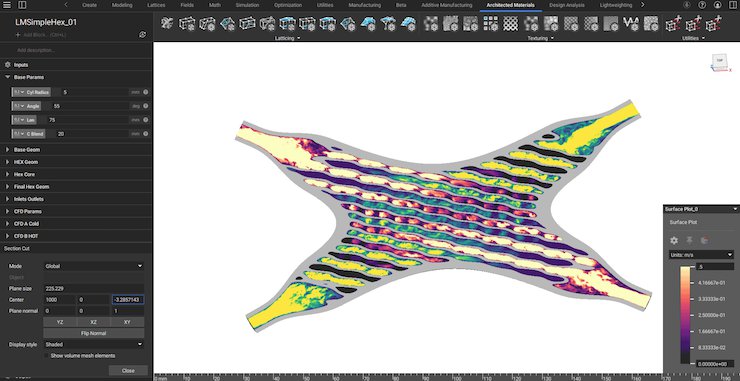
nTop has acquired computational fluid dynamics company cloudfluid to enhance its advanced manufacturing software offering.
(more…)
nTop has acquired computational fluid dynamics company cloudfluid to enhance its advanced manufacturing software offering.
(more…)The Finite Difference Method (FDM) is an Eulerian method that involves approximating the derivative of a function using finite differences. It relies on a previously defined spatial discrete mesh of nodes. The starting point is the Newton-Raphson method, where the derivative of the function at a point equals the slope of the tangent line to the function (curve) at that point.
(more…)Component of SIMULIA’s Fluids Simulation portfolio, XFlow is a particle-based Lattice Boltzmann technology solver for high fidelity Computational Fluid Dynamics (CFD) applications.
(more…)(1903-1957) was a Hungarian-American mathematician, physicist, computer scientist, and polymath who made pioneering contributions to a wide range of fields, including mathematics, physics, economics, and computer science. In the context of Computational Fluid Dynamics (CFD), von Neumann made significant contributions to the development of numerical methods for solving complex fluid flow problems.
(more…)OpenFOAM has gained considerable credibility in recent years through verification and validation studies performed by a growing user base. An increasing number of universities and corporations are also using OF, both independently and in conjunction with other commercial codes. Skimming the agendas of previous OF User Conferences one sees that companies such as Mercedes Benz, BASF, BMW, Volkswagen, and Intel are among those with a presence. This is not surprising, as it is such large companies with inherently large simulation workloads that stand to benefit the most from freeware.
(more…)code_saturne is the free, open-source software developed primarily by EDF for computational fluid dynamics (CFD) applications.
It solves the Navier-Stokes equations with scalar transport for 2D, 2D-axisymmetric, and 3D flows, whether steady or unsteady, laminar or turbulent, incompressible, dilatable, or weakly compressible, isothermal or not.
(more…)Guest contributor James Reinders concludes his “interview” with ChatGPT focusing on Fortran (greatest programming language ever?) and exploring what the next steps for chatbots will be.
I recently wrote about my experience with interviewing ChatGPT here. As promised, in this follow-on and conclusion of my interview, I focus on Fortran and other languages.
All in good fun. I hope you enjoy the conclusion of my interview. After my programming language questions, I conclude with a few notes about ChatGPT writing programs, and other chatbots creating book covers for us.
(more…)Convergent Science, a trailblazer in the realm of computational fluid dynamics (CFD), has unveiled CONVERGE, a cutting-edge software solution that promises to revolutionize the way we approach fluid flow simulations. With a global footprint spanning the United States, Europe, and Asia, this innovative company has set its sights on empowering enterprises of all sizes to harness the full potential of CFD technology.
(more…)Introduction to Computational Fluid Dynamics is a self-contained introduction to a new subject, arising through the amalgamation of classical fluid dynamics and numerical analysis supported by powerful computers. Written in the style of a text book for advanced level B.Tech, M.Tech and M.Sc. students of various science and engineering disciplines. It introduces the reader to finite-difference and finite-volume methods for studying and analyzing linear and non-linear problems of fluid flow governed by inviscid incompressible and compressible Euler equations as also incompressible and compressible viscous flows governed by boundary-layer and Navier-Stokes equations. Simple turbulence modelling has been presented.
(more…)Fluid Dynamic Sciences, co-founded by Aero Design Labs and Zenotech, is unveiled today at NVIDIA GTC 2024. Fluid Dynamic Sciences will lead the charge in the next generation of Computational Fluid Dynamics (CFD) with Innovative AI and GPU utilization.
(more…)